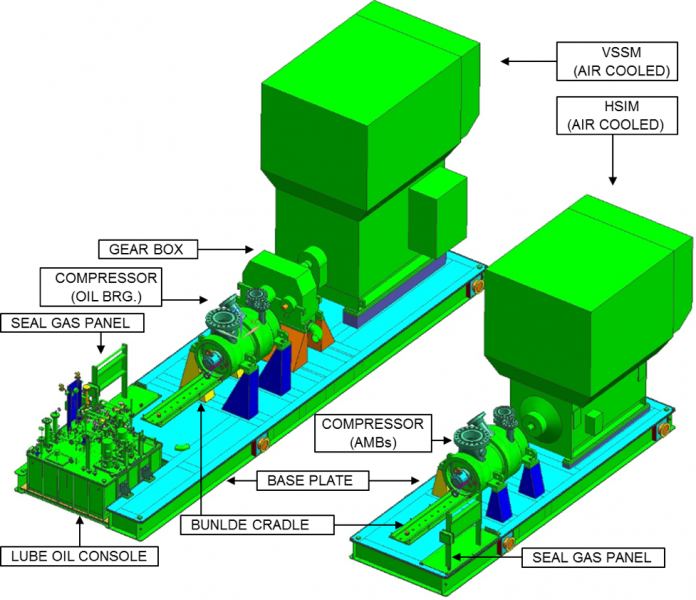
Oil and gas operators continue to face increased pressure to simultaneously reduce the total cost of ownership (TCO) and environmental impact of their operations, particularly rotating equipment assets. In light of this, the concept of oil-free compression trains has gained traction.
Oil-free compression trains offer numerous benefits when compared to traditional compression systems, including more efficient use of the available power, enhanced reliability, and fewer health, safety, and environmental (HSE) impacts. Some of the components that make oil-free compression possible, such as active magnetic bearings (AMBs), have existed in the marketplace for more than three decades. However, for various reasons, they failed to gain acceptance by the majority of oil and gas operators.
This has changed in recent years, as advancements in AMBs, along with other important building blocks of mechanical drivers, has led to the development of robust and reliable oil-free compression systems that offer low OPEX, enhanced operating flexibility, and minimal weight and space requirements.
An overview of oil-free compression trains
As the name suggests, an oil-free compression train refers to a combination of rotating equipment used for gas compression for which oil is not required.
Read the rest of the article here.

